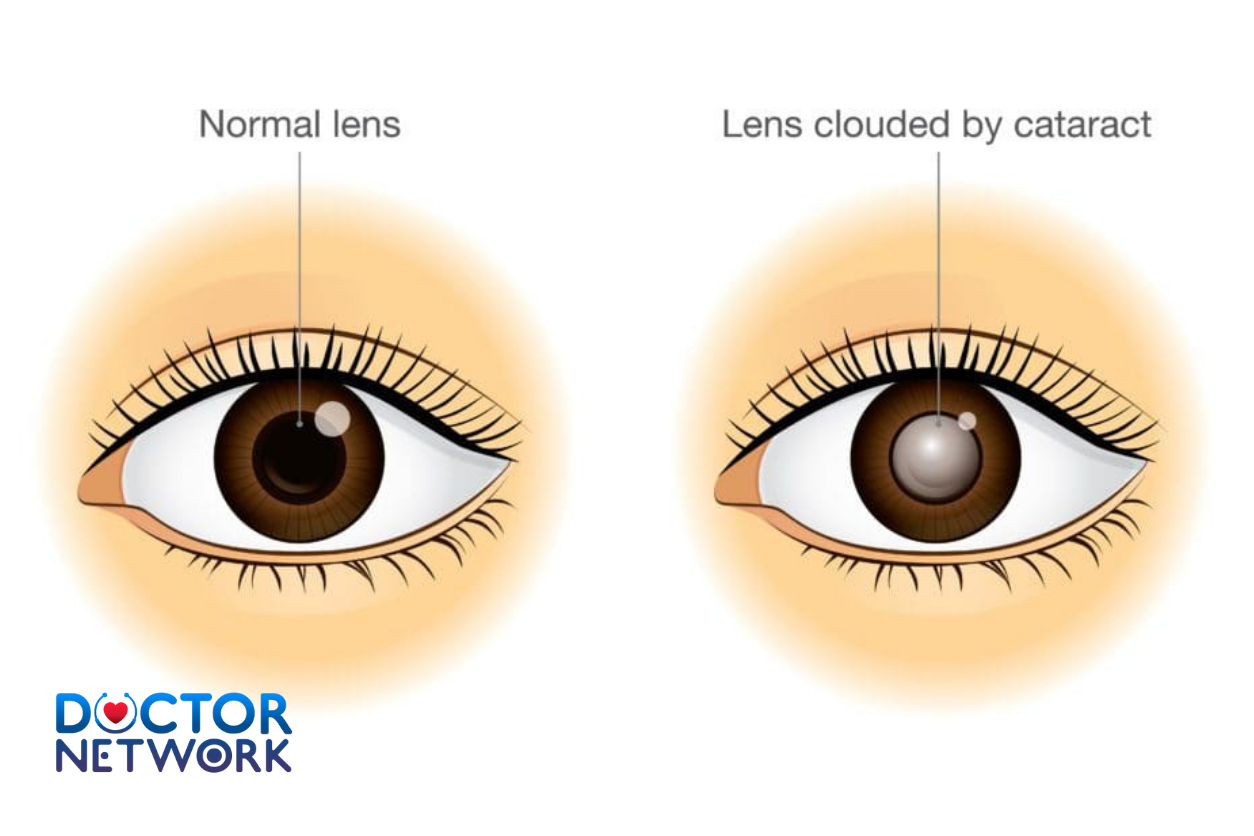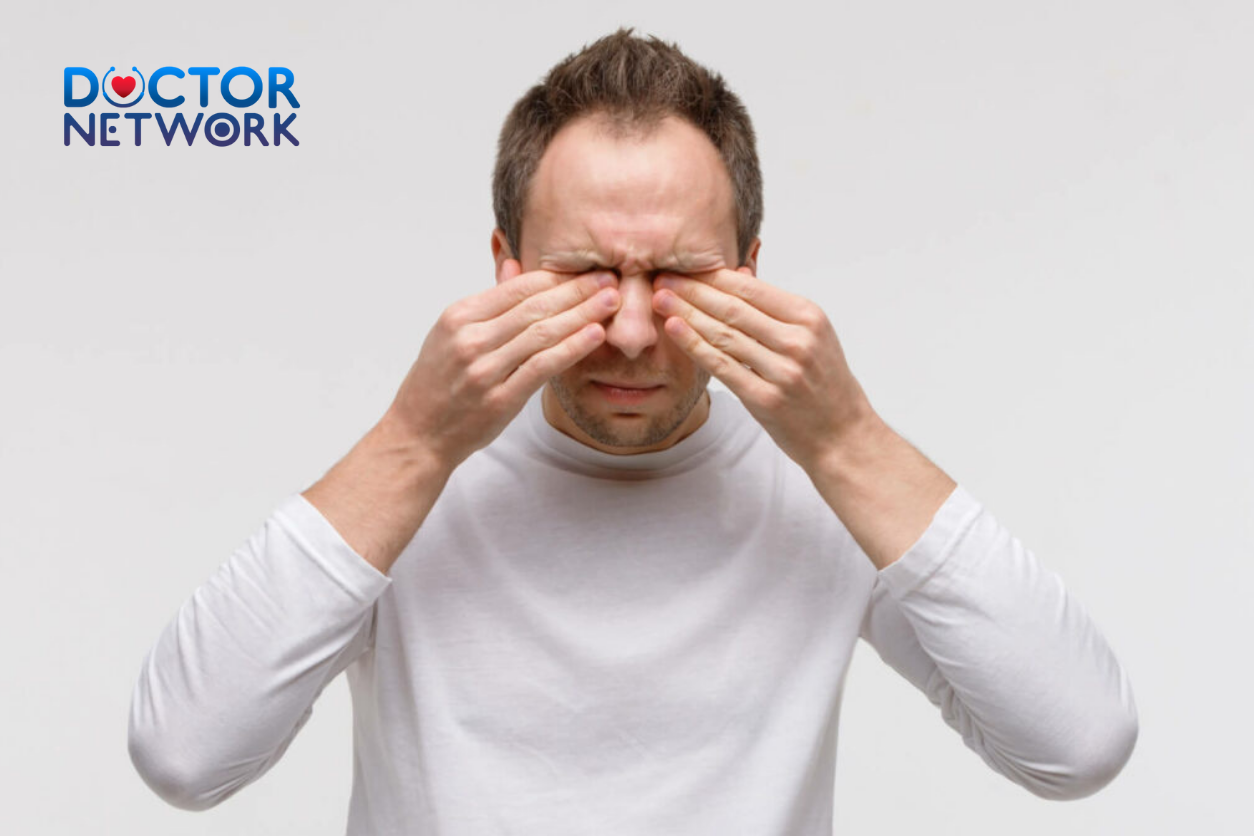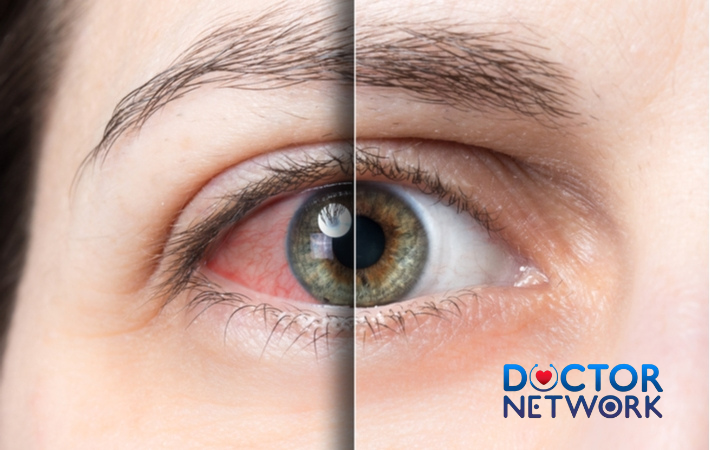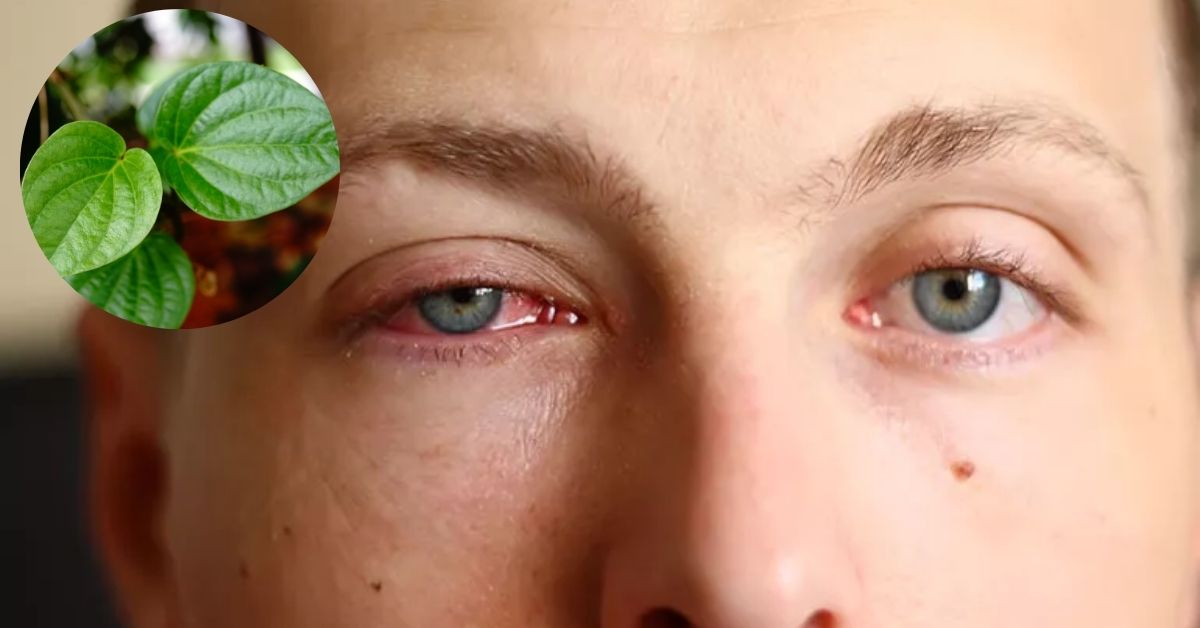Have you ever experienced the sensation of sand in your eyes, even when there’s no apparent cause? This gritty feeling, medically known as ocular surface discomfort, can be both irritating and concerning. While many assume dust is the culprit, the reality is often more complex. This comprehensive guide will explore the various reasons behind this uncomfortable sensation and provide expert solutions to alleviate your discomfort.
In this article, we’ll delve into the most common causes of “gritty eyes without dust“, from dry eye syndrome to more serious underlying conditions. We’ll also discuss effective treatment options, preventive measures, and when to seek professional help. By the end, you’ll have a clear understanding of what might be causing your ocular discomfort and how to address it effectively.
Understanding Gritty Eyes: More Than Meets the Eye
What Causes the Gritty Sensation in Eyes?
The gritty feeling in your eyes, often described as a foreign body sensation, can stem from various factors. Contrary to popular belief, dust isn’t always the culprit. Here are some common causes:
- Dry Eye Syndrome
- Blepharitis (eyelid inflammation)
- Meibomian Gland Dysfunction
- Environmental factors
- Digital eye strain
Let’s explore each of these in detail to understand their impact on your ocular comfort.
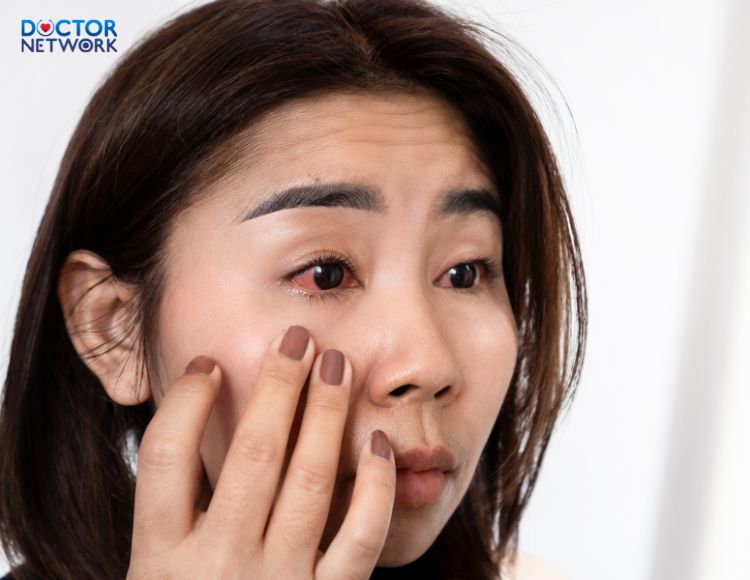
Dry eyes are the leading cause of eye irritation not caused by dust
The Usual Suspects: Common Causes of Gritty Eyes
Dry Eye Syndrome: The Silent Culprit
Dry Eye Syndrome (DES) is a multifactorial condition that occurs when your eyes don’t produce enough tears or when the tears evaporate too quickly. This leads to inadequate lubrication of the ocular surface, resulting in that gritty sensation.
| Symptoms of Dry Eye Syndrome | Possible Causes |
|---|---|
| Burning or stinging sensation | Age-related changes |
| Redness | Hormonal imbalances |
| Blurred vision | Certain medications |
| Light sensitivity | Autoimmune disorders |
To combat DES, ophthalmologists often recommend a combination of artificial tears, lifestyle changes, and in some cases, prescription medications like Restasis or Xiidra.
Blepharitis: When Eyelids Become the Problem
Blepharitis is an inflammation of the eyelids that can cause a gritty sensation in your eyes. This condition often results from an overgrowth of bacteria on the eyelids or problems with the oil glands near the eyelashes.
Symptoms of blepharitis include:
- Red, swollen eyelids
- Flaky skin around the eyes
- Crusty eyelashes upon waking
- Excessive tearing or dry eyes
Treatment typically involves maintaining proper eyelid hygiene through warm compresses and gentle cleansing of the eyelids with specialized products recommended by your eye care professional.
Meibomian Gland Dysfunction: The Oil Factory Malfunction
Meibomian glands, located in your eyelids, produce oils that help prevent tear evaporation. When these glands don’t function properly, it leads to Meibomian Gland Dysfunction (MGD), resulting in rapid tear evaporation and that gritty feeling.
Dr. Jane Smith, a renowned ophthalmologist at the American Academy of Ophthalmology, states, “MGD is a leading cause of evaporative dry eye and can significantly impact a patient’s quality of life. Early diagnosis and treatment are crucial for managing this condition effectively.”
Environmental Factors and Lifestyle Choices
Digital Eye Strain: The Modern-Day Menace
In today’s digital age, prolonged screen time can lead to digital eye strain, also known as Computer Vision Syndrome (CVS). This condition can cause a gritty sensation in your eyes, along with other symptoms like headaches and blurred vision.
To combat digital eye strain, follow the 20-20-20 rule:
- Every 20 minutes
- Look at something 20 feet away
- For at least 20 seconds
This simple technique can help reduce eye fatigue and discomfort associated with prolonged screen time.
Environmental Irritants: More Than Just Dust
While dust isn’t always the cause of gritty eyes, other environmental factors can contribute to this sensation:
- Low humidity
- Air pollution
- Allergens
- Wind exposure
Using a humidifier in dry environments and wearing protective eyewear outdoors can help mitigate these environmental impacts on your ocular comfort.
Treatment Options: Finding Relief for Gritty Eyes
Over-the-Counter Solutions
For mild cases of gritty eyes, over-the-counter treatments can provide significant relief:
- Artificial tears
- Lubricating eye gels
- Eyelid cleansing wipes
- Omega-3 fatty acid supplements
When choosing artificial tears, opt for preservative-free options if you plan to use them more than four times a day to minimize the risk of irritation.
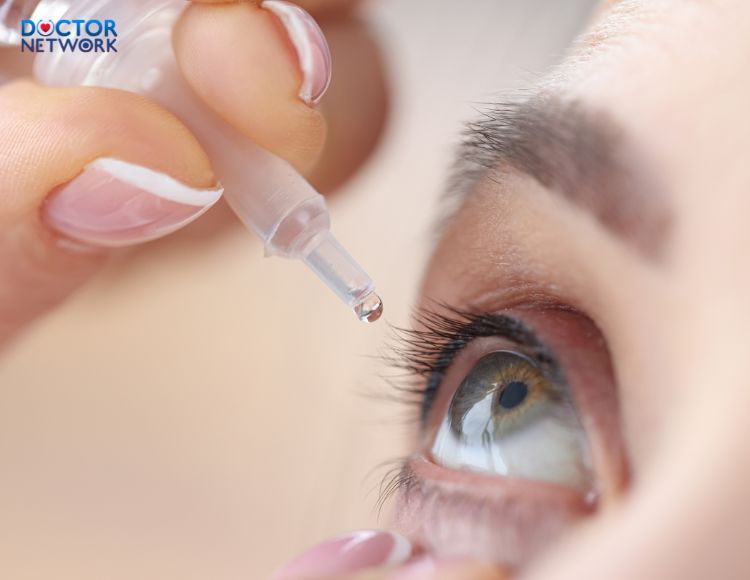
Instill eye drops frequently to maintain moisture
Prescription Medications and Advanced Treatments
For more severe or persistent cases, your eye care professional may recommend:
- Prescription eye drops (e.g., cyclosporine, lifitegrast)
- Punctal plugs to reduce tear drainage
- Intense Pulsed Light (IPL) therapy for MGD
- Autologous serum eye drops
Dr. Michael Johnson, a leading optometrist specializing in dry eye treatment, emphasizes, “Advanced treatments like IPL and autologous serum eye drops have shown promising results in managing severe cases of ocular surface discomfort that don’t respond to conventional therapies.”
When to Seek Professional Help
While occasional eye discomfort is common, persistent or severe symptoms warrant professional evaluation. Consult an eye care professional if you experience:
- Persistent grittiness lasting more than a few days
- Severe pain or redness
- Changes in vision
- Discharge from the eyes
Early intervention can prevent potential complications and ensure proper management of underlying conditions.

Wear sunglasses in the sun to protect your eyes
Conclusion: Seeing Clearly Through the Grittiness
Gritty eyes, even without visible dust, can be a frustrating and uncomfortable experience. By understanding the various causes and available treatment options, you can take proactive steps to maintain your ocular health and comfort.
Remember, your eyes are precious organs that deserve expert care. If you’re experiencing persistent discomfort, don’t hesitate to seek professional help. With the right approach and treatment, you can restore clarity and comfort to your vision, ensuring your eyes remain the windows to your world, clear and unburdened.
5 frequently asked questions related to the topic “gritty eyes without dust”
Can dry eyes cause a gritty sensation even without visible irritants?
Answer: Yes, Dry Eye Syndrome (DES) can definitely cause a gritty sensation in your eyes even without visible irritants like dust. This condition occurs when your eyes don’t produce enough tears or when the tears evaporate too quickly. The ocular surface, which includes the cornea and conjunctiva, becomes inadequately lubricated, leading to friction and that characteristic sandy or gritty feeling. Dr. Sarah Johnson, a leading ophthalmologist at the American Academy of Ophthalmology, explains, “Many patients with DES describe a sensation of something in their eyes, despite no foreign body being present. This is often due to micro-abrasions on the corneal surface caused by inadequate tear film.”
How does screen time contribute to gritty-feeling eyes?
Answer: Prolonged screen time can lead to a condition called Computer Vision Syndrome (CVS) or Digital Eye Strain, which often manifests as a gritty sensation in the eyes. When we focus on digital screens, our blink rate significantly decreases, sometimes by up to 60%. This reduced blinking leads to increased tear evaporation and can exacerbate symptoms of dry eye. Additionally, the blue light emitted by digital devices may contribute to eye fatigue. The American Optometric Association recommends following the 20-20-20 rule: every 20 minutes, take a 20-second break to look at something 20 feet away. This can help reduce eye strain and associated symptoms like grittiness.
Could allergies be causing my eyes to feel gritty?
Answer: Absolutely. Ocular allergies, also known as allergic conjunctivitis, can cause a gritty sensation in your eyes. When your eyes are exposed to allergens like pollen, pet dander, or dust mites, they release histamines and other inflammatory substances. This can lead to symptoms including itchiness, redness, and a gritty or sandy feeling. Dr. Michael Lee, an allergist at the American College of Allergy, Asthma & Immunology, states, “Many patients mistake allergy symptoms for dry eye. It’s crucial to get a proper diagnosis, as the treatments for these conditions differ.” Antihistamine eye drops or oral allergy medications may be recommended to alleviate these symptoms.
Is the gritty feeling in my eyes a sign of a more serious condition?
Answer: While a gritty sensation is often associated with benign conditions like Dry Eye Syndrome or mild allergies, it can sometimes indicate more serious eye conditions. For instance:
- Blepharitis: An inflammation of the eyelids that can cause a gritty feeling along with redness and crusting of the eyelashes.
- Meibomian Gland Dysfunction (MGD): A blockage of the oil-producing glands in the eyelids, leading to tear film instability and eye discomfort.
- Sjögren’s syndrome: An autoimmune disorder that affects moisture-producing glands, including those in the eyes.
- Corneal abrasions: Small scratches on the surface of the eye that can cause a foreign body sensation.
If the gritty feeling persists or is accompanied by other symptoms like pain, vision changes, or eye redness, it’s important to consult an ophthalmologist or optometrist for a comprehensive eye examination.
What are some effective home remedies for relieving gritty eyes?
Answer: Several home remedies can provide relief for gritty eyes:
- Warm compresses: Apply a warm, damp washcloth to closed eyes for 5-10 minutes to help unclog oil glands and improve tear quality.
- Artificial tears: Over-the-counter lubricating eye drops can help supplement your natural tear film and reduce grittiness.
- Omega-3 supplements: These may help improve tear quality and reduce inflammation associated with dry eye.
- Eyelid hygiene: Gently cleaning your eyelids with a mild, tear-free baby shampoo can help remove debris and reduce symptoms of conditions like blepharitis.
- Increase humidity: Using a humidifier in dry environments can help prevent tear evaporation.
Dr. Emily Chen, a dry eye specialist at the Tear Film & Ocular Surface Society, advises, “While these home remedies can be effective for mild cases, it’s important to consult an eye care professional if symptoms persist or worsen. They can provide a proper diagnosis and recommend more targeted treatments if necessary.
Scientific evidence
- Increased tear osmolarity: Office environments that use air conditioning a lot and have low humidity increase tear osmolarity, causing damage to corneal and conjunctival epithelial cells, leading to a feeling of grittiness and burning (according to research published in The Ocular Surface, 2007).
- Reduced blinking frequency: Research in the journal Optometry & Vision Science (2006) showed that using computers and phones reduces blinking frequency, thereby reducing the spread of tears on the surface of the eyeball, causing dry eyes.
- Meibomian gland dysfunction: According to an article in the journal Investigative Ophthalmology & Visual Science (2011), blockage of the Meibomian glands, an oil gland in the eyelid, is a common cause of dry eyes due to excessive tear evaporation.
References:
6 common reasons for that gritty feeling in your eyes – A.Vogelavogel.co·1
Gritty Eyes: Causes and Treatments – Kadrmas Eye Care New Englandkadrmaseyecare·2
Kiểm Duyệt Nội Dung
More than 10 years of marketing communications experience in the medical and health field.
Successfully deployed marketing communication activities, content development and social networking channels for hospital partners, clinics, doctors and medical professionals across the country.
More than 6 years of experience in organizing and producing leading prestigious medical programs in Vietnam, in collaboration with Ho Chi Minh City Television (HTV). Typical programs include Nhật Ký Blouse Trắng, Bác Sĩ Nói Gì, Alo Bác Sĩ Nghe, Nhật Ký Hạnh Phúc, Vui Khỏe Cùng Con, Bác Sỹ Mẹ, v.v.
Comprehensive cooperation with hundreds of hospitals and clinics, thousands of doctors and medical experts to join hands in building a medical content and service platform on the Doctor Network application.














